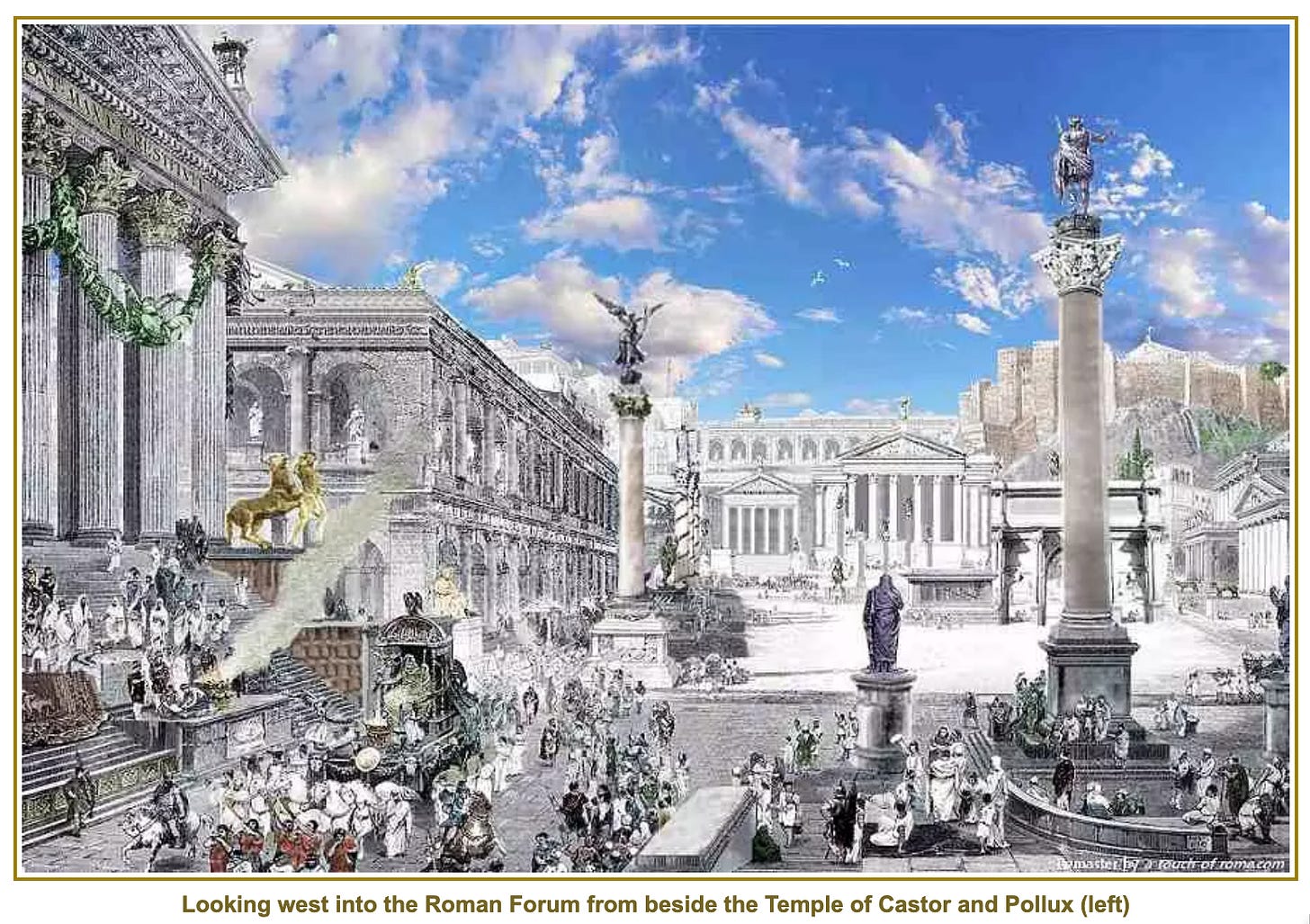Reading About Rome
A note on my current course: Economic Growth in Historical Perspective...
A note on my current course: Economic Growth in Historical Perspective...
Due to an oversight, I do not have any readings explicitly focused on Rome for my classes this semester—even though I spend 8% of my class time this semester on Rome. I, you see, use it as the example of a society of domination in the long Malthusian agrarian age—a society that is very successful, a successful “efflorescence”, along many dimensions.
So, below the fold: A brief list of what I currently find most useful, moving rapidly from the simple to the very complex. I follow it with a very brief account of my current thinking: Rome’s vast territorial expansion, economic integration, and infrastructural development represent one of the most significant “efflorescences” in agrarian-age history.
The big question is: Did this efflorescence translate into a net improvement in human flourishing, or did it merely make the Roman élite the beneficiaries of a Malthusian society of domination that was even more of a shitshow than was usual in the long agrarian age? Regrettably, I have to confess that I do not know—although I do think that, fifty years after the conquest frontier washed over your region, it was probably a net improvement for human flourishing as long as the Pax Romana could last.




